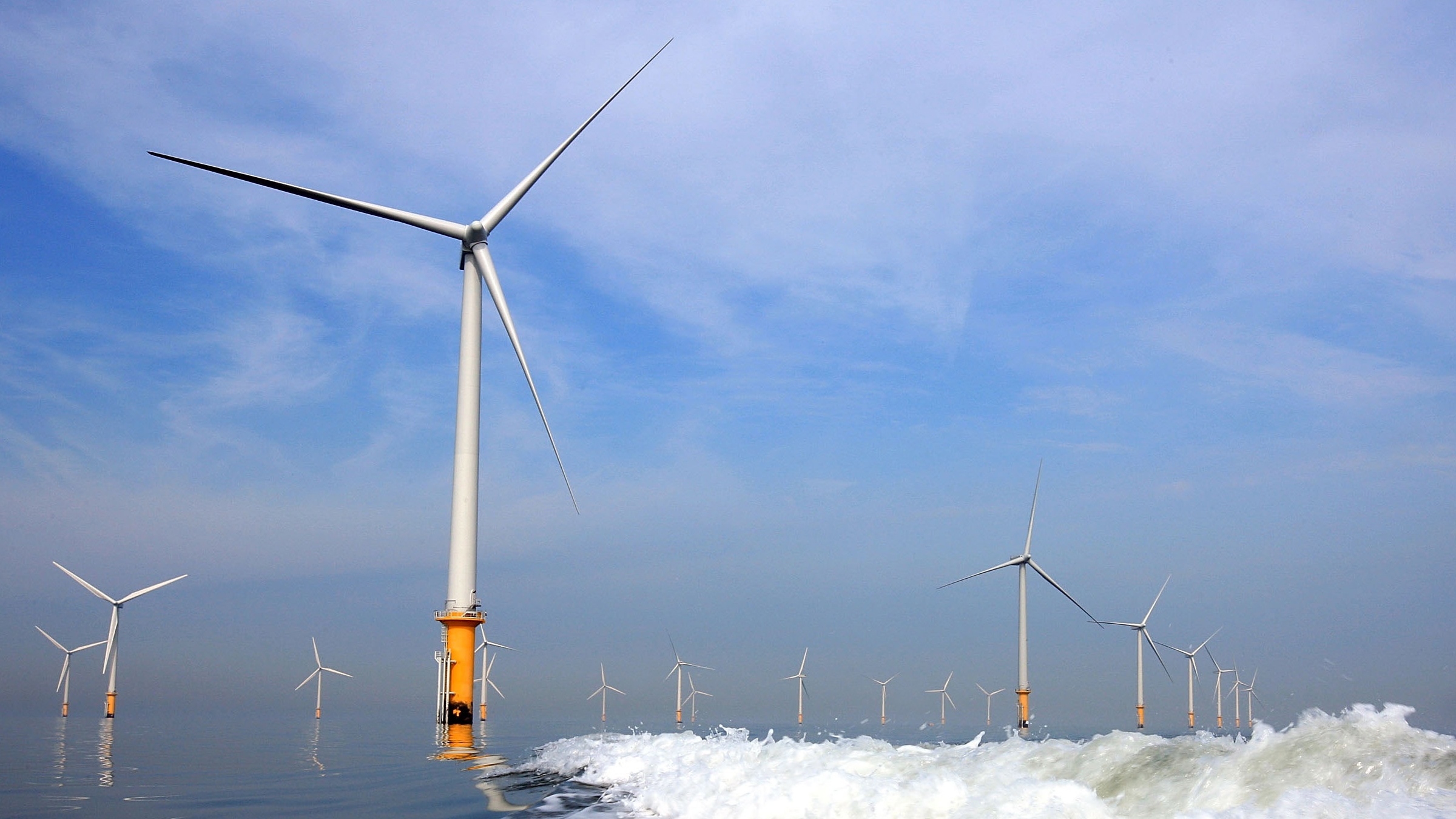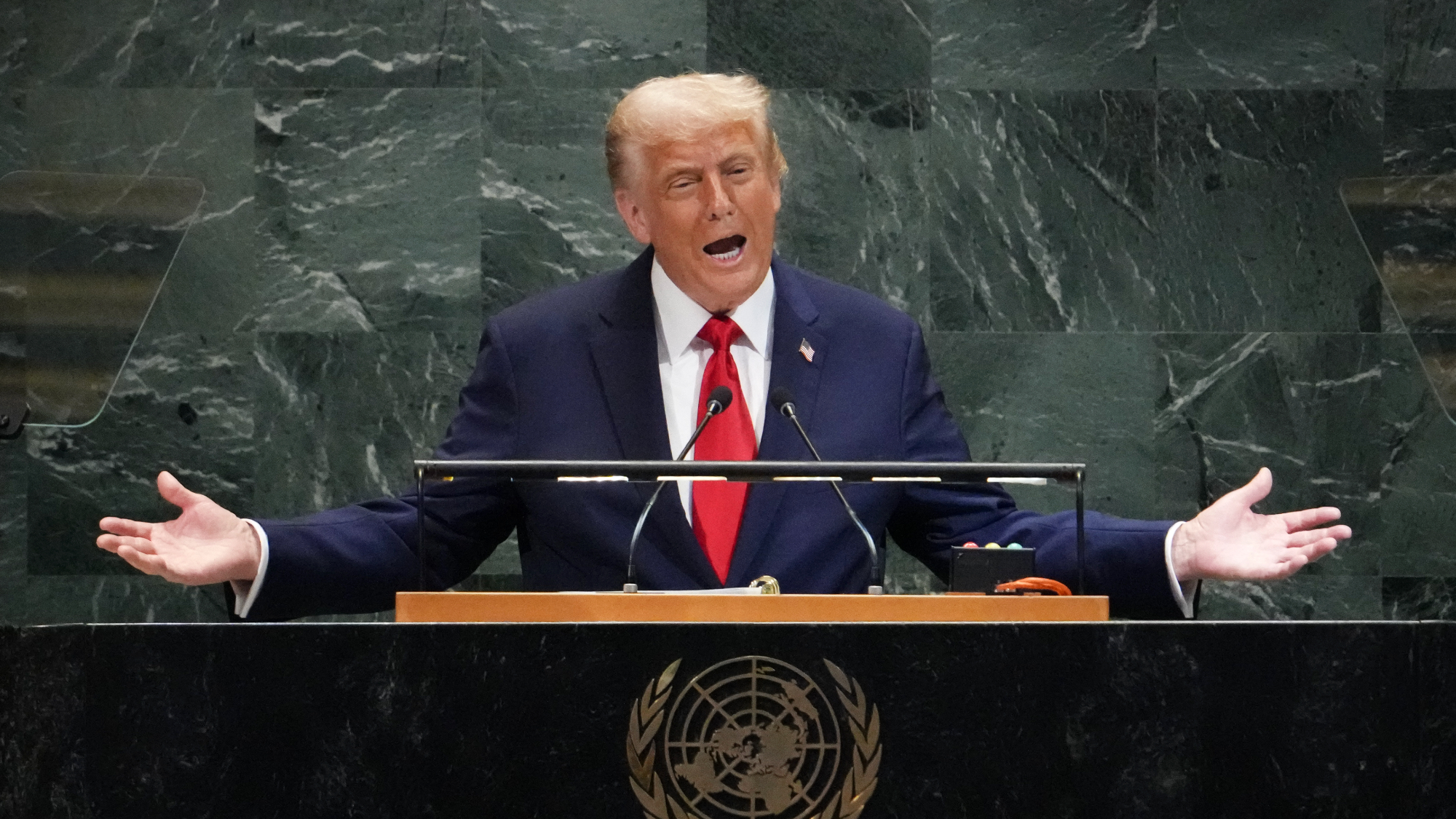Where the Tory leadership candidates stand on net zero
Conservative contenders are reluctant to be seen as the green candidate

A free daily email with the biggest news stories of the day – and the best features from TheWeek.com
You are now subscribed
Your newsletter sign-up was successful
The UK’s commitment to its net zero targets could become a new dividing line in the Conservative leadership race as right-wing candidates pledge to scrap a raft of green policies.
Outgoing prime minister Boris Johnson “made cutting emissions a priority and sought leadership on the global stage by hosting the COP26 summit in Glasgow in November”, said Bloomberg. But just eight months after the summit, Johnson is set to leave the role amid a cost-of-living crisis and rising fuel and food prices after the Russian invasion of Ukraine.
It means his party’s dedication to taking action on climate change is “wavering before the nation even gets on track to reach its carbon goals”, said the news site.
The Week
Escape your echo chamber. Get the facts behind the news, plus analysis from multiple perspectives.

Sign up for The Week's Free Newsletters
From our morning news briefing to a weekly Good News Newsletter, get the best of The Week delivered directly to your inbox.
From our morning news briefing to a weekly Good News Newsletter, get the best of The Week delivered directly to your inbox.
Environmental issues have become increasingly divisive in the party in recent years. Craig Mackinlay, chair of the Net Zero Scrutiny Group, has claimed that some 58 MPs have joined its ranks and told ConservativeHome that “at least 100” MPs are sympathetic. However, only 20 MPs are publicly named as members.
Where do the leadership candidates stand?
Still the favourite to win the leadership race, former chancellor Rishi Sunak has “sometimes been a reluctant backer of Johnson’s green policies”, said Bloomberg. He has yet to release any detailed environmental plans, and did not mention the net zero goal at the launch of his leadership bid last Tuesday.
Under his chancellorship, he also “cut fuel duty for drivers for the first time in a decade and has sought ways to encourage investment in new oil and gas fields”.
Sunak’s biggest rival, Penny Mordaunt, has likewise kept relatively quiet on green issues, but in an article for The Daily Telegraph last week, she announced a wide-ranging package of economic reforms that she argued would provide “a huge boost for our plans to achieve net zero, where we believe that up to three million green jobs could be generated by 2030, creating the apprenticeships, new jobs and training opportunities right across our United Kingdom”.
A free daily email with the biggest news stories of the day – and the best features from TheWeek.com
She has also pledged to repeal the 2030 ban on new petrol and diesel cars introduced by Johnson and promised to introduce an immediate 50% cut in fuel duty, according to The Sun.
During her time in government Foreign Secretary Liz Truss also backed Johnson’s plans to reach net zero emissions by 2050, but since entering the leadership race she has suggested she wanted to look again at policies aimed at achieving the target.
“I’d have a temporary moratorium on the green energy levy to enable businesses and industry to thrive while looking at the best way of delivering net zero,” Truss told The Spectator this week.
Tom Tugendhat has committed to keeping the target, telling The Telegraph: “Net zero isn’t just about climate change anymore, but shielding ourselves from Russia’s weaponisation of its position in energy markets”.
Kemi Badenoch, a rising star on the right wing of the Conservative Party but still an underdog in the leadership race, has come out most strongly against the government’s current net zero policy, branding it as “unilateral economic disarmament”.
“Too many policies, like net zero targets, set up with no thought to the effects on industries in the poorer parts of this country,” Badenoch said at her campaign launch yesterday.
The attorney general and leadership hopeful Suella Braverman has also attacked the policy, writing in the Daily Express last weekend that in order to tackle the energy crisis “we need to suspend the all-consuming desire to achieve net zero by 2050.
“If we keep it up, especially before businesses and families can adjust, our economy will end up with net zero growth,” she wrote.
Does net zero have a future?
The hesitancy to be seen as the green leadership candidate has been criticised by fellow Tories. Simon Clarke, chief secretary to the Treasury, tweeted last week: “Delivering Net Zero is hugely important to prevent the devastating impact of climate change on drought and flood risk, migration flows and food security.”
In a joint article for The Telegraph, Tory parliamentarians Chris Skidmore and Zac Goldsmith warned that the party would be “digging our electoral grave” if it abandons its efforts to tackle climate change.
And in an interview with the i newspaper, Johnson’s former business secretary Alok Sharma criticised any move to ditch net zero as “economically illiterate” and that dropping net zero promises would act as an “economic bazooka”.
But supporters of net zero may not have too much to fear. The Conservative Environment Network (CEN) has some 133 MPs as members, according to The Guardian, suggesting that backbench MPs who do not want to pursue net zero targets are still in a minority.
Sorcha Bradley is a writer at The Week and a regular on “The Week Unwrapped” podcast. She worked at The Week magazine for a year and a half before taking up her current role with the digital team, where she mostly covers UK current affairs and politics. Before joining The Week, Sorcha worked at slow-news start-up Tortoise Media. She has also written for Sky News, The Sunday Times, the London Evening Standard and Grazia magazine, among other publications. She has a master’s in newspaper journalism from City, University of London, where she specialised in political journalism.
-
 Political cartoons for February 21
Political cartoons for February 21Cartoons Saturday’s political cartoons include consequences, secrets, and more
-
 Crisis in Cuba: a ‘golden opportunity’ for Washington?
Crisis in Cuba: a ‘golden opportunity’ for Washington?Talking Point The Trump administration is applying the pressure, and with Latin America swinging to the right, Havana is becoming more ‘politically isolated’
-
 5 thoroughly redacted cartoons about Pam Bondi protecting predators
5 thoroughly redacted cartoons about Pam Bondi protecting predatorsCartoons Artists take on the real victim, types of protection, and more
-
 ‘States that set ambitious climate targets are already feeling the tension’
‘States that set ambitious climate targets are already feeling the tension’Instant Opinion Opinion, comment and editorials of the day
-
 Trump’s EPA kills legal basis for federal climate policy
Trump’s EPA kills legal basis for federal climate policySpeed Read The government’s authority to regulate several planet-warming pollutants has been repealed
-
 How corrupt is the UK?
How corrupt is the UK?The Explainer Decline in standards ‘risks becoming a defining feature of our political culture’ as Britain falls to lowest ever score on global index
-
 The high street: Britain’s next political battleground?
The high street: Britain’s next political battleground?In the Spotlight Mass closure of shops and influx of organised crime are fuelling voter anger, and offer an opening for Reform UK
-
 Trump pulls US from key climate pact, other bodies
Trump pulls US from key climate pact, other bodiesSpeed Read The White House removed dozens of organizations from US participation
-
 The MAGA civil war takes center stage at the Turning Point USA conference
The MAGA civil war takes center stage at the Turning Point USA conferenceIN THE SPOTLIGHT ‘Americafest 2025’ was a who’s who of right-wing heavyweights eager to settle scores and lay claim to the future of MAGA
-
 Trump aims to take down ‘global mothership’ of climate science
Trump aims to take down ‘global mothership’ of climate scienceIN THE SPOTLIGHT By moving to dismantle Colorado’s National Center for Atmospheric Research, the White House says it is targeting ‘climate alarmism’
-
 Is a Reform-Tory pact becoming more likely?
Is a Reform-Tory pact becoming more likely?Today’s Big Question Nigel Farage’s party is ahead in the polls but still falls well short of a Commons majority, while Conservatives are still losing MPs to Reform